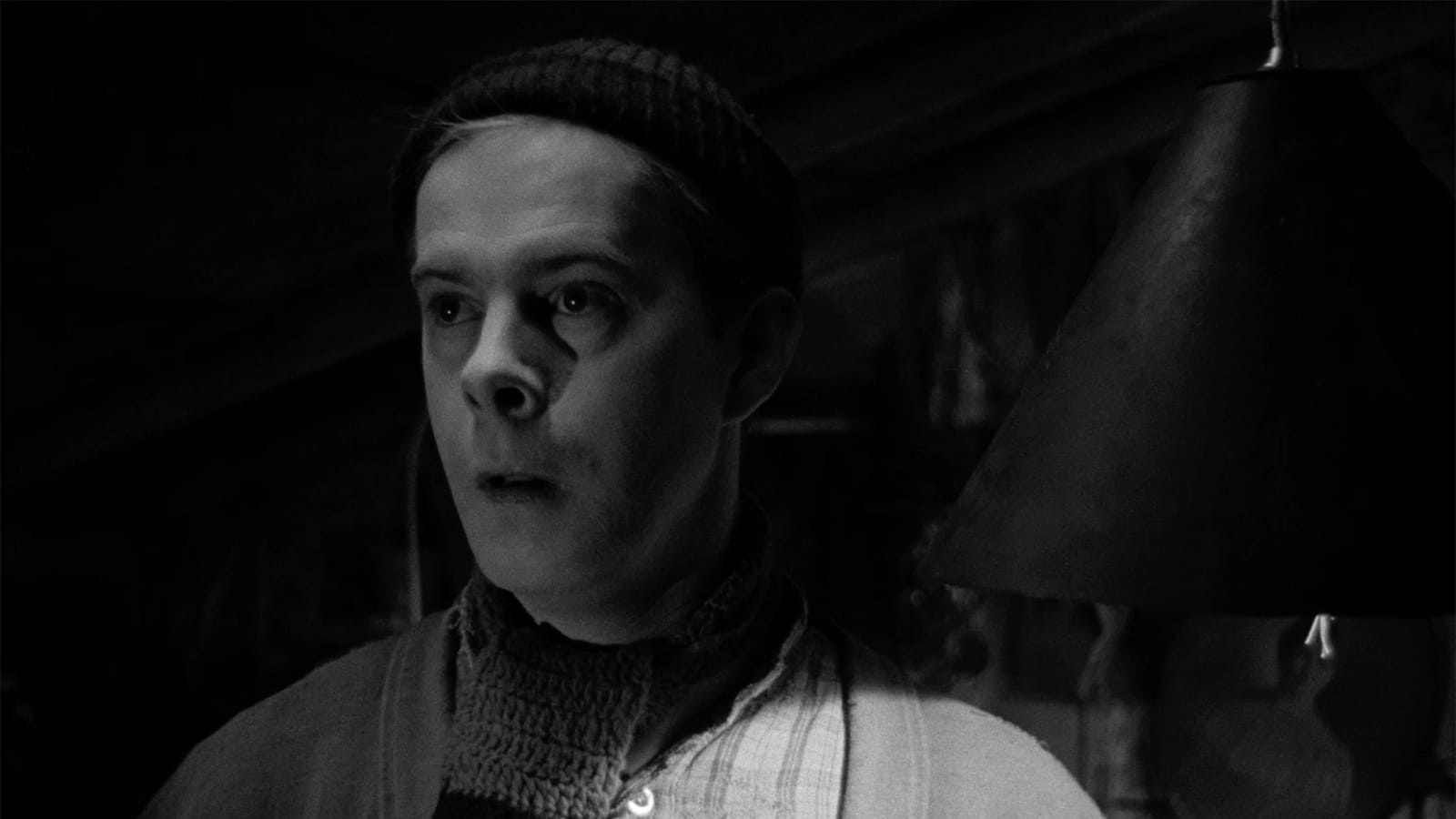RELATED ARTICLE
Least Wanted—Film Noir’s Character Actors: Wallace Ford
Least Wanted—Film Noir’s Character Actors: Thelma Ritter
The Criterion Collection

The old saying that there are no small parts, only small actors, has surely caused thespians of all sizes to roll their eyes and gnash their teeth. But there are performances that stick in the mind forever with only a brief scene or two, and sometimes with no lines at all—bit-part equivalents to Bernstein’s Girl on the Ferry in Citizen Kane, the face glimpsed once and still recalled decades later. Who can forget Theresa Harris in Out of the Past, as the glamorous (ex-)maid luxuriating in a Harlem nightclub, wearing a fabulous cascade of flowers on her head and bantering slyly with a visiting detective? Or Edith Evanson as the aging spinster secretary with a gimpy leg who risks her life to help the hero find his wife’s killers in Fritz Lang’s The Big Heat? There is nothing in City That Never Sleeps more memorable than Wally Cassell as “the mechanical man,” an actor hired to impersonate a robot as a publicity stunt in the window of a burlesque joint. Anthony Mann’s Raw Deal pivots on the fleeting appearance of Whit Bissell as a distraught wife-killer whose hunted-animal pathos rearranges the mood and dynamics of the story.
Often, one misremembers
just how small these parts are, as I always do with Harry Morgan’s role in Frank
Borzage’s Moonrise (1948). This
tenderly brooding Southern Gothic noir is especially rich in supporting
characters and rare—for noir—in depicting not just isolated individuals, but a
community. The story centers on Danny Hawkins (Dane Clark), a young man haunted
and persecuted all his life because his father was hanged for murder. But the
film is also a portrait of a small town: its humid, glistening swamps and
derelict, cobweb-laced plantation mansions, its open-air dances and county fairs,
ancient Civil War veterans and jive-talking soda jerks, small-minded bigotry
and big-hearted redeemers. Danny’s closest friend is an embittered,
philosophical black man named Mose (Rex Ingram) who has “resigned from the
human race” and who calls his dogs “Mister” because “there isn’t enough
dignity in the world.” The bond between outsiders was Borzage’s great theme,
and it is expressed even more poignantly, and wordlessly, through the character
of Billy Scripture (Morgan, credited here as Henry), a mentally disabled
deaf-mute.
That this role never seems exploitative
or cloyingly saccharine is thanks to Morgan’s exceptionally natural and
empathetic performance. The part is rarely mentioned in appraisals of his
career. Born Harry Bratsberg and raised in Michigan, Morgan was never a leading
man, but worked prolifically in film and television, best remembered for his
long-running role as Col. Sherman T. Potter on the TV show M*A*S*H. Some character actors made a living by being easily
typecast (need a butler? Call Robert Grieg. A gangland henchman? Call Jack La
Rue. A beady-eyed, hard-nosed bank manager? Call Charles Lane). Morgan, by
contrast, was versatile, turning his homely, average looks to very different
uses. He has a glowering, thuggish menace in The Big Clock and Dark City
(the latter marked the start of his close friendship with Jack Webb, with whom
he would co-star on TV’s Dragnet),
but he is just as believable in the role of a buttoned-up coward in High Noon or a pensive cowboy in The Ox-Bow Incident.
